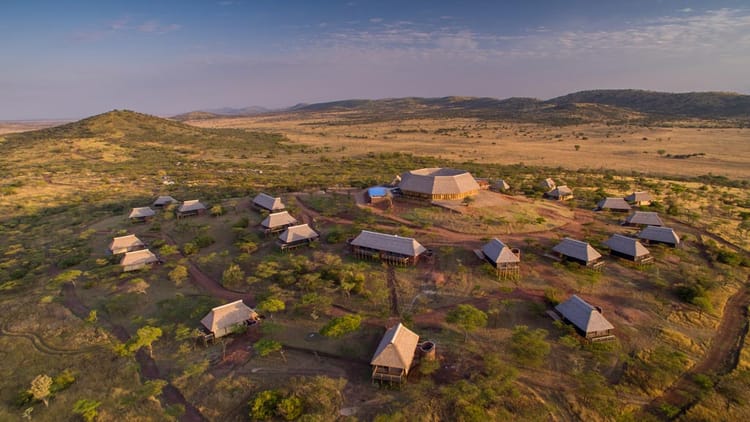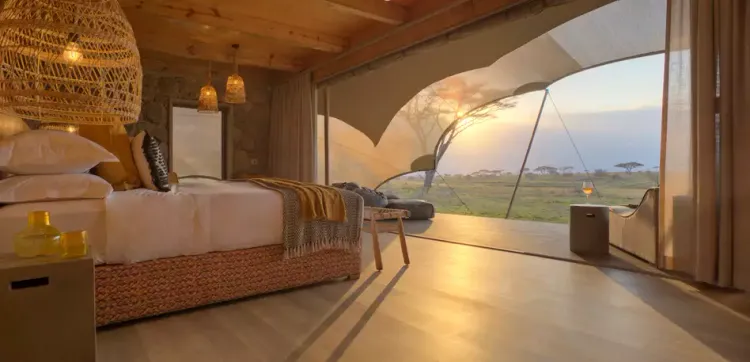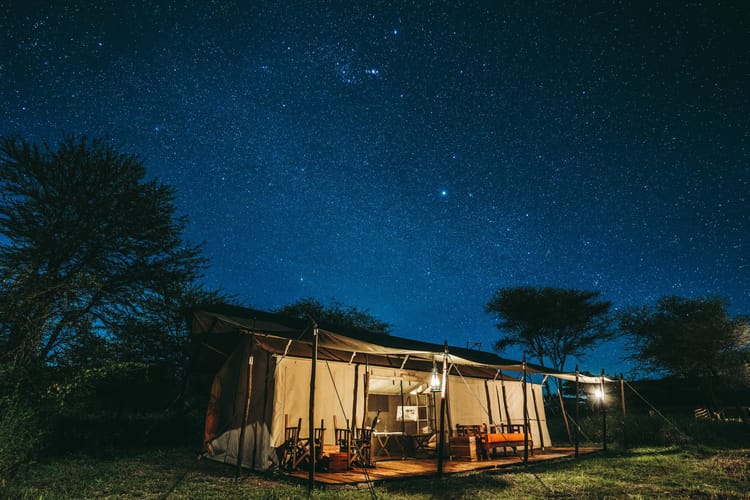Why is a Safari so Expensive: a Myth

African safaris are often perceived as extravagant, once-in-a-lifetime adventures reserved for the wealthy. Stories of luxurious lodges, private game drives, and gourmet meals in the wild paint a picture of an unaffordable vacation. However, the reality is quite different. In fact, safaris in Tanzania and Kenya can be quite affordable if you know where to look and how to plan. We will break down the costs involved, highlight the hidden values and benefits, and provide practical tips for enjoying an unforgettable safari without breaking the bank.
Breaking Down the Costs
Overview of Safari Costs
The perception of high costs associated with safaris often stems from the luxurious options that dominate the market and show up on in the media. But just like any other vacation, the cost of a safari can vary widely depending on your choices. Let us look at some of the costs that make up a safari.
Accommodation
Luxury Lodges: These can be quite expensive, offering top-notch amenities, private guides, and exquisite dining. This style of accommodation is often portrayed in the media from celebrities or other high-profile individuals trips. These lodges do offer an incredible experience for their guests, but it does come at a much steeper price tag. Typically, these lodges will cost around $1,000 USD per night for two people sharing a room. Some examples of these lodges include Giraffe Manor, Meliá Serengeti Lodge Meliá Collection, Four Seasons Safari Lodge Serengeti.
Mid-Range Lodges and Tented Camps: These offer a balance of comfort and cost, providing essential amenities without the high price tag. Often located in prime wildlife areas, mid-range lodges and tented camps give travellers the chance to enjoy the safari experience with comfortable beds, en-suite bathrooms, and delicious meals. The prices for mid-range accommodations generally range from $300 to $750 USD per night for two people sharing a room, making it a more affordable yet comfortable option for many travellers. Examples of these lodges include Serengeti Sametu Camp, Ang'ata Camp Serengeti, and Ndutu Safari Lodge.
Budget Campsites: For the more adventurous, camping in national parks is a great way to save money while still experiencing the wild up close. Budget campsites typically offer basic amenities such as shared bathrooms and simple dining facilities. These campsites are perfect for those looking to immerse themselves in nature and enjoy the authentic safari experience without the added frills. Costs for budget campsites can be as low as $200 USD per night for two people sharing a tent, making it the most economical option for safari-goers. A great tented camp is the Kati Kati Tented Camp in Tarangire.
Transportation
International Flights: The cost of getting to Tanzania or Kenya can vary based on your departure location and the time of year. For example, a return flight from New York to Nairobi, Kenya could be as high as $1,800 per person during peak season (July to August), but as low as $800 per person during a quieter month, such as October. Planning ahead of time is essential to ensure you are getting the best value for your flight!
Internal Flights and Transfers: Once in the country, internal flights or road transfers to safari destinations are necessary. However, on CloudSafaris, all of our trips will include the necessary transfers for your trip and the pricing into the total trip cost.
Park Fees and Permits
National Park Entry Fees: Both Tanzania and Kenya charge daily entry fees for their national parks and reserves. These fees go towards conservation efforts. Just like transfers once you are on safari, park fees are also included in our trips on CloudSafaris. However, park fees can make up a significant portion of a trips cost. For example, Serengeti National Park, perhaps then most famous safari park in all of Africa, charges guests staying in lodges in the park around $150 per day in fees.
Special Permits: Some activities, like descending into the Ngorongoro Crater or tracking gorillas, require special permits. These can add on to your trip cost, but are typically always worth it as these are key attractions that you do not want to miss on your safari.
Hidden Values and Benefits
Inclusions in Safari Packages
Many of our safari packages are all-inclusive, covering all meals, accommodations, park fees, and guides.
Unique Experiences
A safari offers priceless experiences that are hard to quantify in monetary terms. Close encounters with wildlife, breathtaking landscapes, and cultural interactions with local communities are just a few examples.
Conservation Contributions
The fees you pay contribute directly to conservation efforts and local economies. This means your money is helping to preserve wildlife and support communities, adding intrinsic value to your expenditure.
Cost Comparison with Other Vacations
When compared to other popular vacation destinations, safaris can be quite similar in terms of cost. Let's compare the average costs for flights, food, and accommodations for a week-long trip to a European city or a beach resort compared to a safari in Tanzania or Kenya.
European City Vacation
- Flights: Round-trip flights from the United States to popular European cities like Paris, London, or Rome typically cost between $600 and $1,200 per person, depending on the season and how far in advance you book.
- Accommodations: Mid-range hotels in these cities usually cost around $150 to $300 per night for a double room. For a week, this adds up to approximately $525 to $1,050 per person, assuming two people sharing a room.
- Food: Dining out in European cities can be quite expensive. On average, you can expect to spend around $75 to $125 per day per person on food, totalling $525 to $875 for a week.
- Local Transportation: Public transportation, such as metro or bus passes, typically costs around $50 to $100 per week.
- Sightseeing and Entertainment: Entrance fees to popular tourist attractions and entertainment can range from $100 to $300 per week.
- Total: When you add up the costs, a week-long trip to a European city can easily range from $1,800 to $3,525 per person, not including additional expenses such as entertainment, local transportation, and sightseeing.
Beach Resort Vacation
- Flights: Round-trip flights to popular beach destinations like the Caribbean, Hawaii, or the Maldives typically cost between $500 and $1,000 per person.
- Accommodations: Mid-range beach resorts often charge around $400 to $600 per night for a double room. For a week, this amounts to approximately $1,400 to $2,100 per person, assuming two people sharing a room.
- Food: Depending on the destination, food costs at beach resorts can vary widely. On average, you can expect to spend around $50 to $100 per day per person, totalling $350 to $700 for a week.
- Total: Overall, a week-long beach resort vacation can cost anywhere from $2,250 to $3,800 per person, not including additional expenses such as water sports, excursions, and local transportation.
Safari in Tanzania or Kenya
- Flights: Round-trip flights from the United States to Tanzania or Kenya generally range from $800 to $1,800 per person, depending on the season and booking time.
- Accommodations: Mid-range safari lodges and tented camps in Tanzania and Kenya typically cost between $300 and $750 per person for a double room. For a week, this amounts to approximately $2,100 to $5,250 per person, assuming two people sharing a room.
- Food: Most safari packages include meals and house drinks.
- Total: When you add up the costs, a week-long safari in Tanzania or Kenya can range from $2,900 to $7,050 per person, including flights, accommodations, and food.
In-Depth Comparison
- European City Vacation: $1,800 to $3,525 per person
- Beach Resort Vacation: $2,250 to $3,800 per person
- Safari in Tanzania or Kenya: $2,900 to $7,050 per person
While the cost of a safari in Tanzania or Kenya can be on par with or slightly higher than a vacation to a European city or beach resort, the unique experiences, inclusion of meals in many safari packages, and the potential for budget-friendly options make safaris a compelling choice. Additionally, the value for money in terms of wildlife encounters, stunning landscapes, and cultural immersion often surpasses the more conventional vacation experiences.
Value for Money
Safaris provide a unique value proposition with the ability to not only go to a very exciting new country (and continent for most) - but also the chance to see iconic animals in their natural habitat. All of this while exploring vast and diverse landscapes, and immersing yourself in a different culture can be more enriching and memorable than a typical vacation.
Practical Tips for Reducing Costs
Off-Peak Travel
Traveling during the off-peak season can lead to substantial savings. Both Tanzania and Kenya have well-defined peak and off-peak seasons. During the off-peak months, you can find discounts on accommodations, tours, and flights, making a safari more affordable.
Early Flight Booking
Booking your safari well in advance can be very beneficial for lower the cost for your international flight.
Group Travel
Traveling with a group can significantly lower costs. Sharing expenses for accommodations, transportation, and guides can make a safari more affordable for everyone involved.
Recap
Safaris in Tanzania and Kenya are often perceived as expensive, but with careful planning and the right choices, they can be quite affordable. By understanding the breakdown of costs, recognizing the hidden values and benefits, and utilizing practical tips for saving money, you can enjoy an unforgettable safari experience without breaking the bank.





Member discussion